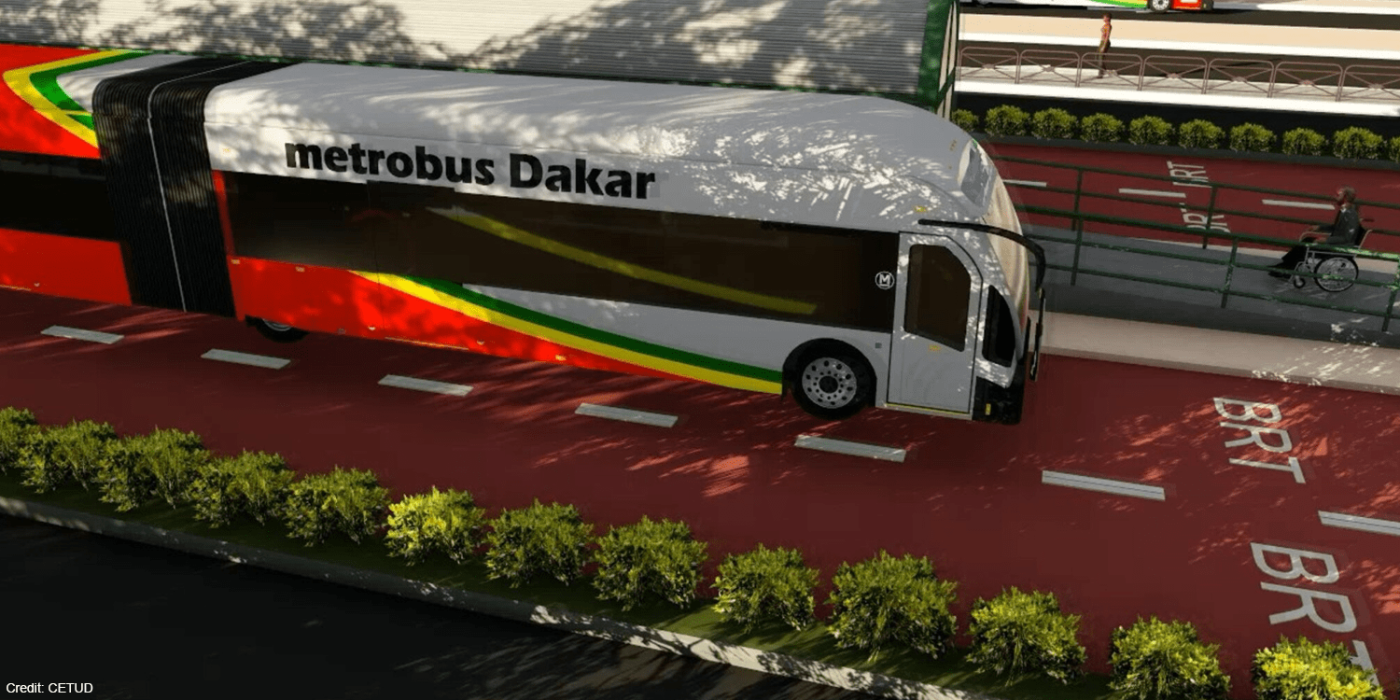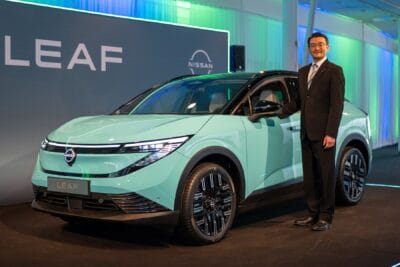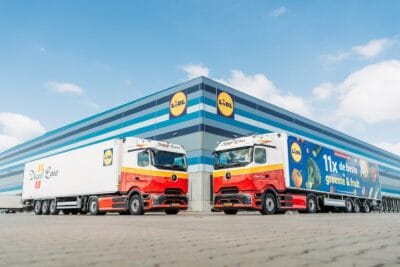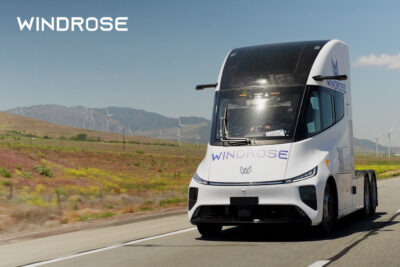All-electric bus services to start in Senegal
Infrastructure investor Meridiam is implementing a large bus project in Africa with its partners Keolis and Fonsis. The concession contract now signed provides a total investment of more than 135 million euros for operating and maintaining an exclusively electric bus public transport network in Senegal’s capital Dakar.
+ + Kindly see our update below + +
The concession runs for a period of 15 years. The Bus Rapid Transit or BRT system is scheduled to start operating in the summer of 2023 and will be powered by 121 battery buses. The bus service is envisaged with one omnibus line and three rapid bus routes.
Unlike some regular bus routes, BRT buses operate on their own, structurally separate lanes. In Dakar, at least 18.3 kilometres of BRT lanes are planned, making the buses less susceptible to traffic-related delays even at peak times.
Meridiam says the modern express buses will not only increase comfort and safety but also improve the reliability of public transport and journey times. The French company calculates that the travel time between Dakar city centre and the northern coastal town of Guédiawaye should drop from 90 to 45 minutes during rush hours as transport costs are capped via the state’s tariff policy and social tariffs.
Dakar is one of the largest cities in West Africa and the economic and political capital of Senegal. Its population (3.8 million) is expected to grow by about 40 per cent over the next decade, according to Meridiam. The project is “part of the ambitious and global strategy to modernise Dakar’s urban mobility and transport network by 2025”, according to the investor.
Around the Dakar Metrobus, 1,000 direct jobs are to be created in the capital, of which about a third will be for drivers. The focus in hiring is to be on women and young people. Every day, 300,000 people are expected to use the BRT service.
Meridiam partner Fonsis is a Senegalese investment company specialising in energy and infrastructure, among other things. Meridiam is best known in Europe as the owner of Allego. The French investor acquired the Dutch charging point operator in 2018. Meridiam’s partner Keolis is a public transport provider based in Paris and very active in Europe. Keolis has worked with different bus makers in numerous electric bus initiatives on the continent, including Chinese bus makers Yutong and BYD – both of whom have ambitions in Africa.
Although the French investor claims “Meridiam signs the contract for the first electric bus in Africa in Dakar,” electric buses are already up and running in different parts of Africa – though indeed not yet on this scale. According to South China Morning Post, BYD took orders for electric buses in Cape Town, South Africa in 2016, and for 15 of its K9 model electric buses to Alexandria Passenger Transportation Authority in Egypt. Both orders of buses were delivered in 2018. Chinese electric bus giant Yutong is also eyeing up African markets. This time last year, we reported that a total of 1,500 electric buses are to be produced in Qatar within seven years from the end of 2022, intended for export not only to the Middle East and Europe but also Africa.
Elsewhere in Africa, Kenya is also making progress with electric buses, where the Swedish-Kenyan company Opibus has already made their first electric bus, which is already being trialled in Nairobi. The company is planning mass production for sales across the continent in late 2023. Opibus is already offering a number of motorbike and off-roader EV conversion kits in Kenya.
For the clean public transport investment in Dakar in Senegal, Meridiam has not yet revealed which vehicles will be used.
Update 26 October 2022:
The procurement of 121 electric buses for the Bus Rapid Transit (BRT) project in the Senegalese capital Dakar, announced a few months ago, is becoming concrete. Dakar Mobilité has awarded the contract for the delivery of the electric buses and the charging infrastructure for them to the Chinese manufacturer CRRC. The 121 electric buses, which have batteries with a capacity of 563.8 kWh each, are to be delivered to Dakar in March 2023. CRRC will also install 23 charging stations for the electric buses in 14 municipalities in the Dakar area.
“The buses will run on 18.3 km of dedicated and equipped lanes, serving 14 councils with 23 stations (stops) for the benefit of 300,000 passengers daily,” says infrastructure investor Meridiam.





0 Comments